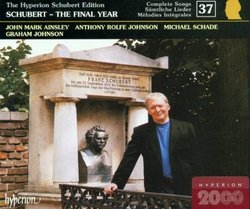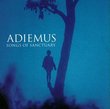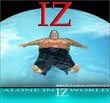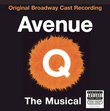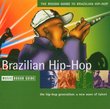Schubert - the Final Year
Melanie Eskenazi | Cheam UK | 10/29/2000
(4 out of 5 stars)
"In his fascinating notes, Graham Johnson remarks at one point, "...who can buck the market?" How true - but what a pity that he had to follow such a market trend as having "Three Tenors" for this recording, which is a disappointing one in some ways. He got it absolutely right in his choices of Ian Bostridge for "Schöne Müllerin" and Matthias Goerne for "Winterreise," but on the present disc only John Mark Ainsley really stands comparison with the best - Michael Schade has a pleasant voice of no special distinction, but of course he sure is one hunky guy - that market again - and Anthony Rolfe Johnson, though a wonderful communicator in recital and once a glorious singer on disc, sounds simply past it, and is not helped by his fluty pronunciation in which any word with an "e" in it seems to have an extra one or two added. Johnson explains that he wanted "Schwanengesang" to be performed by two different singers yet of the same tessitura, so that there would be no outright dislocation. Fair enough, but, given that the "cycle" has to be split up, I think I would have preferred a totally different voice for the Heine settings, a singer with a richer timbre, more dramatic power and certainly better German than that of ARJ - Goerne springs to mind, although one supposes that his contract with Decca precludes such excursions. The chief pleasures on this recording are supplied by Ainsley, yet even he sounds, at times, on the subdued side. Is "Abschied" really such a wistful, restrained song as he and Johnson perform it? It is very beautifully sung indeed, rather on the slow side but with admirable diction and attention to words - this is a tenor who really loves the sound of his own voice, as well he might, and he also seems to savour every syllable - "Ade, liebe Sonne so gehst du zur Ruh' is exquisitely done, as is the melancholy ending. "Liebesbotschaft" also has real beauty and poise - "Wiege das Liebchen in Schlummer ein" is sung with melting tenderness, and the testing "Bächlein, erquicke mit kühlender Flut" is so idiomatically enunciated that it sounds as though it is being sung by a native German speaker for whom the poems have real meaning.He is at his best in "Ständchen" where his lovely timbre, fluid legato and perfect German are again fully in evidence. He is conscious of all who have gone before him with this well-worn song, but as with his "An Silvia" on volume 26, both he and Johnson perform it as though they are the first to do so. Johnson remarks that at the phrase "Liebchen, komm' zu mir!" - "...we can almost feel the singer's tenderness," and Ainsley's sensitive and sensuous performance justifies such a remark. The final lines, with their passionate pleading, are perfectly judged, sung with real fervour yet without going into recitalese - a fine example of Ainsley's art, which so often consists in wringing our hearts without wringing his hands. As for the Heine settings and "Die Taubenpost," I found them mostly disappointing, occasionally irritating. I felt that a certain sense of power in reserve was lacking, and that only in "Das Fischermädchen" did ARJ show what he really could do. "Taubenpost" is a sad disappointment; sung mostly on one level, he makes little of such moments as the heart-rending last line, and his approximately crooned German is nothing short of annoying - as well as hardly even touching on the grace notes before "Heimlich hinein." Surely this supreme example of Schubert's music needs deeply fervent, intensely beautiful singing (in convincing German) rather than just delicate, pinkie-crooking recitalling? Modified rapture, then, for this final instalment in the series. To me, it cannot stand with the supreme achievements of volumes 20, 24, 25 (Schöne Müllerin), 26, 27, 28 and 30 (Winterreise) but then in such a huge undertaking, total uniformity of excellence is too much to ask. Individual taste will always supervene in such matters; I cannot imagine finer performances than, say, Christine Schäfer's of "Der Musensohn" (28) or Matthias Goerne's of "Frühlingstraum" (30) or "Fulle der Liebe," (27) but there are many other beloved Schubert songs where I would not go to the Hyperion edition - "Vor Meiner Wiege" and "Fühlingsglaube" spring to mind - ARJ and Marjana Lipovesek being no match for Fischer-Dieskau here.No music lover should be without the songs on this disc, especially since it includes the rarely heard but wonderful "Auf Dem Strom," (superb horn playing by David Pyatt) and I would buy it for that and for the beautiful singing of the Rellstab songs, not to mention Johnson's indispensable notes. For the Heine settings and "Taubenpost," it's back to Fischer-Dieskau for me, at least until Matthias Goerne gets around to recording them."
Miraculous Singing from John Mark Ainsley
Terry Serres | Minneapolis, MN United States | 11/05/2005
(5 out of 5 stars)
"This is a marvelous album of songs from Schubert's final year. The centerpiece is the ersatz song cycle Schwanengesang, introduced by a judicious and winning selection of other songs. The program order and the performances are such that the album proceeds at a self-assured pace, bespeaking commitment, well-considered interpretations, and musical accomplishment.
The introductory set is taken by Michael Schade, who brings to them a light and communicative style. These songs have a bit of the heartiness or bluster of Beethoven's songs, and the song with piano and horn accompniment that opens the album, "Auf dem Strom," is reminiscent of Beethoven's proto-song-cycle "An die ferne Geliebte," right up to the impetuous closing. This leads into an understated postlude that transports the piece from mimicry to hommage and is rendered touchingly by singer and hornist.
The songs of Schwanengesang are divided into settings of Rellstab and settings of Heine. Although alienation is a common theme threading through the poems, the poets' styles are quite divergent and so is their musical incarnation by Schubert. The garrulous Rellstab poems elicit a varied musical response from Schubert's pen, resulting in a satisfying patchwork. The sardonic, sparser Heine poems bring Schubert to an exploration of declamatory composition, minimalistic yet expressionistic, that remains strikingly modern 175 years later.
Graham Johnson gives the two halves of the cycle to two different tenors -- the Heine to the veteran Anthony Rolfe Johnson, the Rellstab to the younger but established John Mark Ainsley. Between the two halves is an expansive interlude, "Glaube, Hoffnung und Liebe" shared by all three tenors. It serves as a pleasant pallet-cleanser before the harrowing Heine settings.
Ainsley's interpretations of the Rellstab settings are miraculous. His delivery is thoroughly connected with the text, and yet so inhabited by the music, that the age-old tension between "Ton und Wort" dissolves. His virtues are too extraordinary even to catalog without risk of trivializing. He has complete command of the music, but only by putting himself completely in its service. His admirable technique gives him powers of dynamic nuance that he deploys always to telling emotional effect, never cheaply. His voice has a unique combination of qualities -- big and somewhat dark, but supple rather than heavy, and never squally. He never places his big voice between himself and the listener -- a bridge, not an imposing edifice. Three of his songs -- "Liebesbotschaft," "Frühlingsehnsucht," and "Abschied" are wordy effusions that sound like pattersongs even in the mouths of native speakers. He handles the verbosity with elegance, with ample room to sing and to illuminate, to lead us on the song's journey rather than just get to the finish line in one tongue-tied piece. His attention to text allows us to pick up on the hint of melancholy in the final stanza of "Abshied," which peaks at us beneath the brim of the leave-taker's jaunty hat. Some of the Rellstab songs are as intense as the Heine songs -- "Aufenthalt" and "In der Ferne" with its moody harmonic shifts -- and Ainsley is utterly convincing. He's no lightweight, despite a vocal style that favors delicacy and emotional openness over grandiosity.
Rolfe Johnson is authoritative in the Heine settings and in the valedictory "Taubenpost," Schubert's last song. His mature and robust voice is an asset in the raging strophes of "Der Atlas." He brings texture to the sparse lines of the next four songs -- each of these songs is well-known and perfectly fitted to the text, but at the same time they are incomplete and unsatisfying on their own. These poems are relentless, indulging in bitter irony, in despair leading to revelations of even deeper despair. The poems all seem a premonition of "Der Doppelgänger" and the same is true of the music. One hears in these four songs a restless Schubert -- refusing to resolve his harmonies, edging along quasi-experimentally in a declamatory style that reaches its culmination in "Der Doppelgänger," one of the most terrifying songs ever written. Rolfe Johnson's performance of this masterpiece is straightforward, eschewing the sarcastic tone that some singers inflict on the last stanza.
Throughout, in fact, all singers are remarkably free of vocal posturing. I had many moments of hearing these songs afresh, rescued from decades of overblown climaxes, sentiment-milking, and vocal browbeating. This is a superb accomplishment. They are bringing you music, vividly personal music, not making a whistle-stop tour of classics that have become typecast in the collective imagination. The recording's acoustic is utterly pristine -- not an echo or reverberation or boxy effect or imbalance to muddy the music.
Despite the consistency of achievement on this album, Ainsley's performances deserve to be singled out: without disregarding the others, I wish that Graham Johnson had given Ainsley the entire album, he was more than equal to the task. Rolfe Johnson himself had an album to himself earlier in the series (volume 6, with a nocturnal theme). The acoustic that I have praised serves Ainsley and his immediate approach especially well. Ainsley shines on this album and could have brought the Hyperion Schubert Edition, successful as it was, to an even more radiant close."
Not Quite Superlative Schubert
M. J. Gray | New Zealand | 11/19/2004
(4 out of 5 stars)
"This is Graham Johnson's usual high-quality, intelligent music-making, with a banquet of programme notes. It takes longer to read them than it does to listen to the album. I enjoyed the performances of Anthony Rolfe Johnson and Michael Schade on this recording, but alas, they are overshadowed John Mark Ainsley, as they would be by anyone who can make the hackneyed Standchen sound fresh and new. Would that he had recorded the entire album!"
